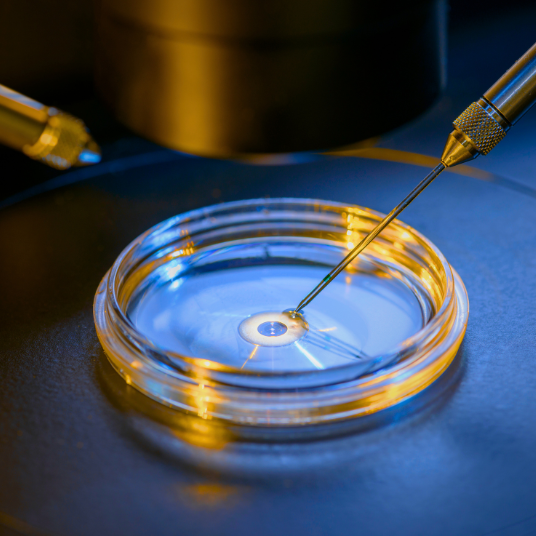Pro-IVF Bills Are Proliferating. Pro-Life and Pro-Family Legislators Must Be Wary.
February 6, 2025 | PFLN Team
Article

Legislation designed to ensconce the “right” to in vitro fertilization (IVF) has been introduced in several states during the 2025 legislative sessions. IVF is promoted as a way for women and couples that cannot conceive a child naturally to achieve pregnancy. And, while millions of children have been conceived through IVF, the process entails significant risks to the health of women and children that must be more widely understood.
Advocates frame pro-IVF bills as protecting individual rights surrounding the pursuit of creating a family. For example, North Dakota HB 1477 stipulates that “the state or any political subdivision of the state may not implement, administer, or enforce any law, rule, or policy that has the effect of prohibiting, limiting, delaying, or impeding access to assisted reproduction services or fertility treatment, or otherwise violate the rights provided for in this section.”
The bill goes on to list the rights of the individual, which include receiving fertility treatments from health care providers and entering contracts with health care providers to handle, test, store, ship, and dispose of an individual’s reproductive genetic material. Similar bills—pushing the same individual rights-oriented narrative—have been introduced in Texas, Tennessee, Maryland, Vermont, and several other states.
Advocates of these bills are attempting to construct a narrative where anyone who opposes pro-IVF bills is an enemy of freedom, women, children, and families. However, this is a false narrative; nothing could be further from the truth. These bills—written and heavily lobbied for by major players in the fertility industry such as Planned Parenthood—do nothing to protect women or children. The IVF industry is almost entirely unregulated and can cause significant harm to those who are unable to make a choice (children) or are unaware of the risks (women).
Harms to Children
The most obvious and severe harm to children is the violation of a child’s right to life. IVF involves simply discarding embryos that are deemed undesirable, which is the equivalent of aborting children. In fact, more babies are likely killed each year as a result of IVF than through more traditional methods of abortion.
Studies have shown that approximately 7 percent of embryos are ultimately implanted. The remaining 93 percent of embryos—millions of unborn children—are either outright destroyed or indefinitely frozen, with small odds of ever being used. Often, embryos are discarded simply because they are considered “undesirable,” such as being the wrong sex or having genetic abnormalities. The United States is a particularly popular destination for IVF because most U.S. clinics allow for this type of embryo selection, which—while essentially being a form of modern-day eugenics—is incredibly lucrative. Profits to the fertility industry are expected to soar from $18,475 billion in 2021 to $28,236 billion by 2025.
On top of this, the few babies that end up being allowed to survive the IVF process are prone to significant physical, cognitive, and developmental disabilities. Research has indicated that children born through IVF are at higher risk of cardiovascular disease, cancer, brain damage, and other substantial health risks. Studies have also shown that children born through IVF have a much higher risk of cognitive impairment; one study found that IVF babies are 58 percent more likely to have intellectual disabilities by the age of eight or older.
Children created through IVF can also struggle with many different developmental problems. For example, it has been estimated that between 30,000 and 60,000 children per year are born to third parties, which can lead to identity problems stemming from the fact that these children do not know the identities of their biological mother and father.
Further, because these children are born from anonymous sperm or egg donations—which is a largely unregulated process—dozens or even hundreds of half-siblings could be living in the same geographic area and be entirely unaware of it. As those children grow up together, they could accidentally begin incestuous relationships with their relatives and produce offspring of their own.
Harms to Women
As with children, there are many ways that women can be harmed through the IVF process. The earliest stage of IVF entails injecting hormonal medications to stimulate a woman’s ovaries, which can result in several severe side effects, including ovarian hyperstimulation syndrome (OHSS). In severe cases, OHSS can be life-threatening.
During the egg retrieval phase, organs near the ovaries can be damaged. Though uncommon, this can require emergency surgery or even blood transfusions. This phase can also result in pelvic infections; in severe cases, surgery may need to be performed to remove the ovaries, fallopian tubes, and/or the uterus.
Further, IVF makes significant pregnancy complications more likely to occur. Having a pregnancy with more than one baby—such as twins or triplets—is more common with IVF. This poses significant risks to both the mother and/or the children, including high blood pressure, gestational diabetes, maternal hemorrhage, miscarriage, and premature birth—the last of which often leads to lifelong health problems for the child.
Ultimately, as the IVF-induced harms to children and women make clear, opposition to pro-IVF bills is entirely justified. Legislators should not fall prey to the false narrative that any resistance to pro-IVF bills constitutes being an enemy of families and freedom.It is impossible to be pro-IVF while also being pro-women, pro-children, pro-family, and pro-life.
If you would like assistance with similar legislation in your state, please reach out to us at PFLN. We are here to assist you.


